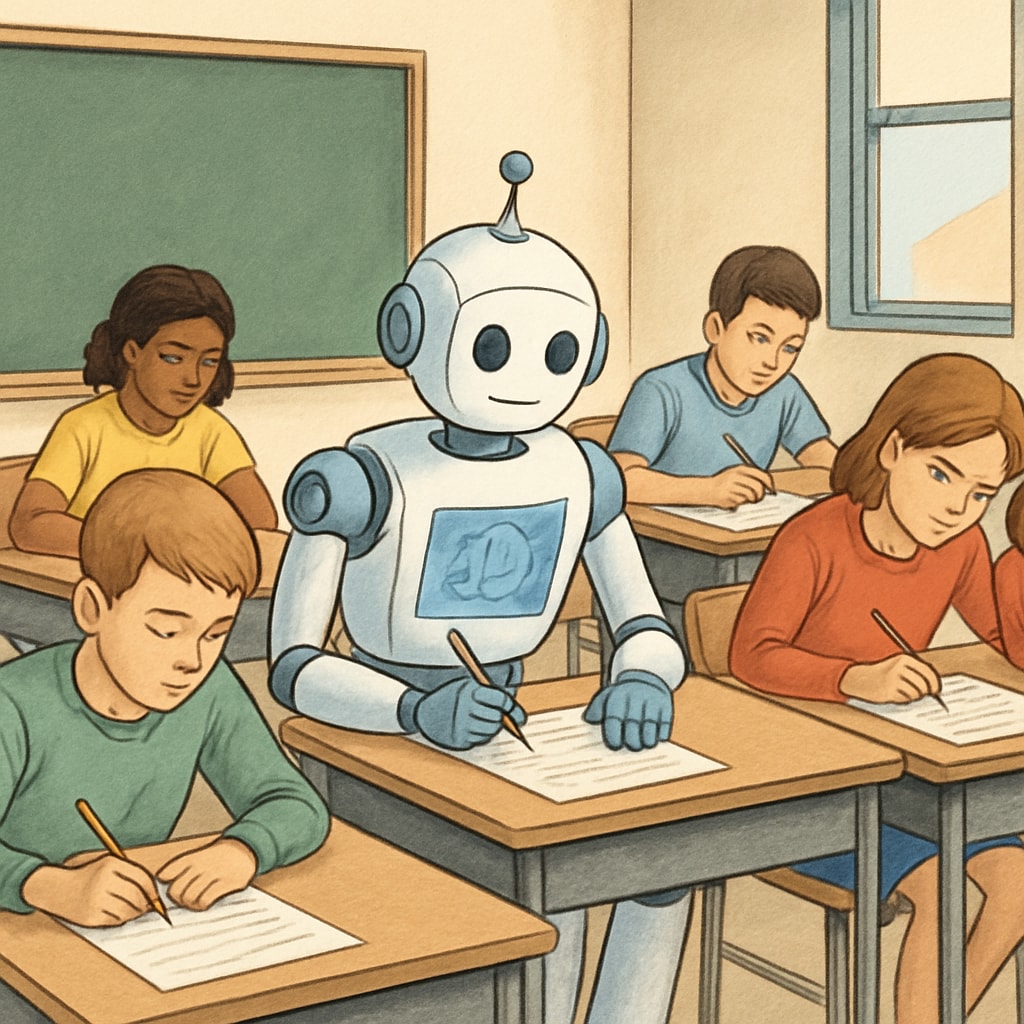The rise of artificial intelligence (AI) is transforming how societies evaluate and select talent. Traditional competitive exams, which have long been the cornerstone of educational systems worldwide, are now facing significant challenges. As AI continues to outperform humans in tasks involving knowledge recall and logical problem-solving, the question arises: are these exams still effective in identifying the skills needed for the future? This article explores the limitations of traditional evaluation systems in the AI era and highlights the urgent need for education reform to foster creativity, adaptability, and other distinctly human traits.
Why Traditional Competitive Exams Are Under Pressure
Competitive exams were originally designed to measure a combination of memory, analytical ability, and standardized problem-solving skills. However, in the AI era, these attributes are increasingly being automated. For instance, AI systems like ChatGPT and GPT-4 can generate well-reasoned essays, solve complex equations, and even simulate creative problem-solving. Such advancements raise concerns about the relevance of testing for rote learning and formulaic thinking in modern education.
Moreover, the over-reliance on exams as a one-size-fits-all measure of intelligence has been criticized for neglecting diverse talents and creativity. In an AI-driven world, where machines excel at repetitive tasks, the ability to think critically, adapt to change, and innovate is more valuable than ever. Thus, traditional exams risk becoming obsolete unless they evolve to assess these future-oriented skills.

Opportunities for a New Talent Selection Paradigm
The challenges posed by AI also present opportunities for rethinking talent selection. Instead of relying solely on high-stakes tests, educational systems can adopt more holistic approaches to assess students’ potential. For example, project-based assessments, portfolio reviews, and collaborative problem-solving exercises can better reflect a student’s creativity and ability to work in dynamic environments.
Additionally, integrating AI into the evaluation process itself could offer new insights. For instance, adaptive testing systems powered by AI can provide personalized assessments that adjust to each student’s strengths and weaknesses. Such tools not only measure academic performance but also identify areas for growth, making education more equitable and tailored.
Countries like Finland and Singapore are already experimenting with such models. Finland, for example, focuses on cross-disciplinary projects and teamwork rather than standardized tests. Meanwhile, Singapore has introduced “holistic development profiles” to complement traditional academic scores, emphasizing character and leadership skills.

Preparing for the Future: Key Recommendations
To ensure that education systems remain relevant in the AI era, policymakers, educators, and institutions must consider the following strategies:
- Redesign Curricula: Shift the focus from rote learning to skills such as critical thinking, creativity, and emotional intelligence.
- Leverage Technology: Use AI tools to create adaptive and personalized learning experiences.
- Promote Lifelong Learning: Foster a culture where continuous skill development is encouraged, especially in fields that complement AI.
- Incorporate Ethical and Social Skills: Prepare students for the moral and societal challenges posed by AI technologies.
- Support Teacher Training: Equip educators with the tools and knowledge to guide students in this new learning paradigm.
These reforms will require collaboration between governments, educational institutions, and technology developers. However, the benefits of such a transformation—more adaptable, innovative, and resilient future leaders—far outweigh the challenges.
Conclusion: A Call for Action
As artificial intelligence continues to reshape the world, traditional competitive exams must evolve to stay relevant. By rethinking talent selection and embracing holistic, future-focused assessments, education systems can prepare students not only to coexist with AI but to thrive in an AI-driven society. The time to act is now, as the skills required for tomorrow’s workforce are already changing today.
In this transformative era, let us prioritize creativity, adaptability, and ethical leadership over rote memorization. The success of our future generations depends on it.
Readability guidance: This article uses concise paragraphs, short sentences, and clear transitions to ensure readability. Lists are employed to summarize key points, and overuse of passive voice is avoided. Strategic placement of keywords supports SEO optimization.


